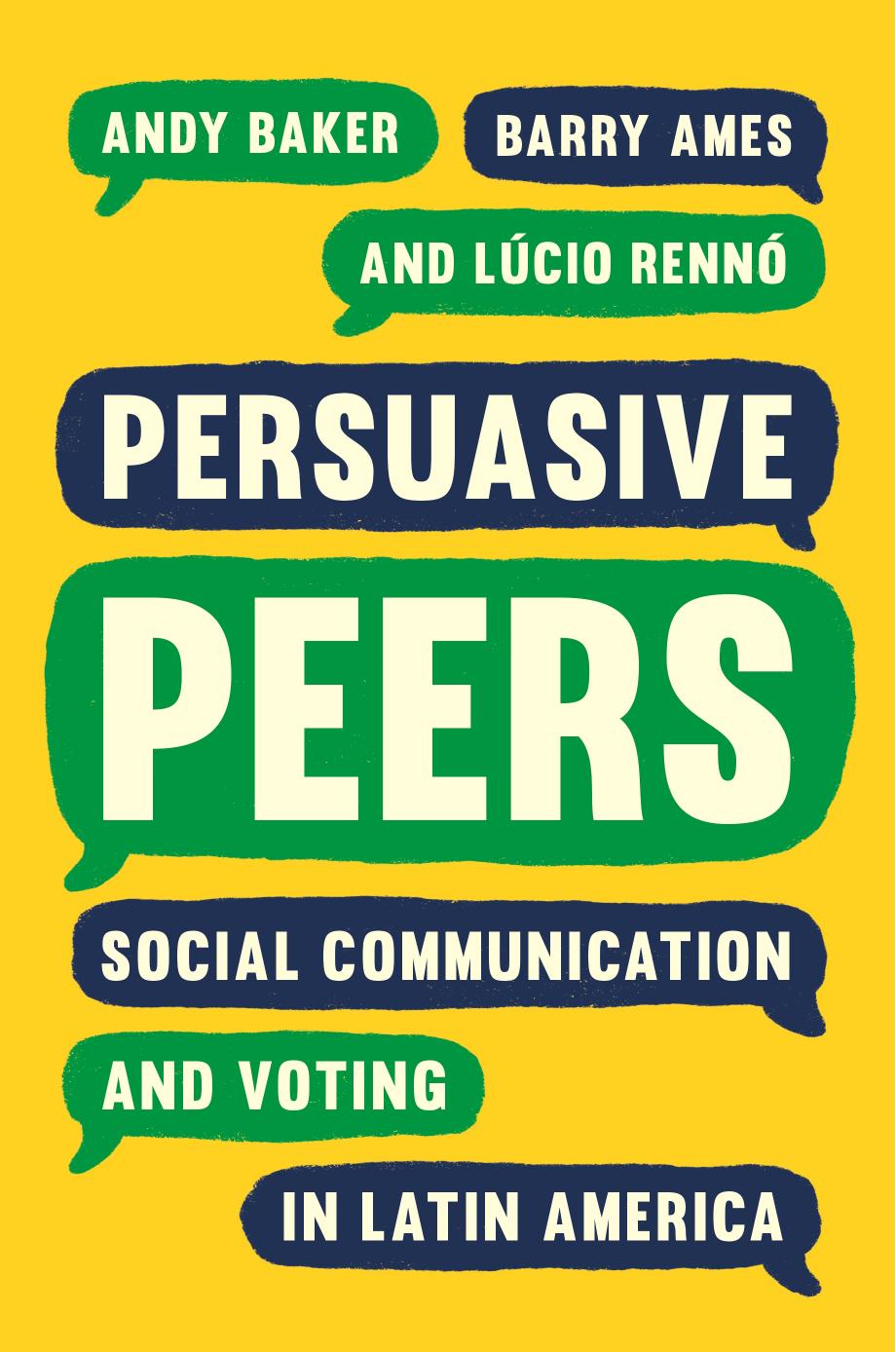Download Persuasive Peers: Social Communication and Voting in Latin America PDF Free - Full Version
Download Persuasive Peers: Social Communication and Voting in Latin America by Andy Baker & Barry Ames & Lúcio Rennó in PDF format completely FREE. No registration required, no payment needed. Get instant access to this valuable resource on PDFdrive.to!
About Persuasive Peers: Social Communication and Voting in Latin America
How voting behavior in Latin America is influenced by social networks and everyday communication among peersIn Latin America’s new democracies, political parties and mass partisanship are not deeply entrenched, leaving many votes up for grabs during election campaigns. In a typical presidential election season, between one-quarter and one-half of all voters—figures unheard of in older democracies—change their voting intentions across party lines in the months before election day. Advancing a new theory of Latin American voting behavior, Persuasive Peers argues that political discussions within informal social networks among family members, friends, neighbors, coworkers, and acquaintances explain this volatility and exert a major influence on final voting choices.Relying on unique survey and interview data from Latin America, the authors show that weakly committed voters defer to their politically knowledgeable peers, creating vast amounts of preference change as political campaigns unfold. Peer influences also matter for unwavering voters, who tend to have social contacts that reinforce their voting intentions. Social influence increases political conformity among voters within neighborhoods, states, and even entire regions, and the authors illustrate how party machines use the social topography of electorates to buy off well-connected voters who can magnify the impact of the payoff.Persuasive Peers demonstrates how everyday communication shapes political outcomes in Latin America’s less-institutionalized democracies.
Detailed Information
| Author: | Andy Baker & Barry Ames & Lúcio Rennó |
|---|---|
| Publication Year: | 2020 |
| Language: | other |
| File Size: | 34.6301 |
| Format: | |
| Price: | FREE |
Safe & Secure Download - No registration required
Why Choose PDFdrive for Your Free Persuasive Peers: Social Communication and Voting in Latin America Download?
- 100% Free: No hidden fees or subscriptions required for one book every day.
- No Registration: Immediate access is available without creating accounts for one book every day.
- Safe and Secure: Clean downloads without malware or viruses
- Multiple Formats: PDF, MOBI, Mpub,... optimized for all devices
- Educational Resource: Supporting knowledge sharing and learning
Frequently Asked Questions
Is it really free to download Persuasive Peers: Social Communication and Voting in Latin America PDF?
Yes, on https://PDFdrive.to you can download Persuasive Peers: Social Communication and Voting in Latin America by Andy Baker & Barry Ames & Lúcio Rennó completely free. We don't require any payment, subscription, or registration to access this PDF file. For 3 books every day.
How can I read Persuasive Peers: Social Communication and Voting in Latin America on my mobile device?
After downloading Persuasive Peers: Social Communication and Voting in Latin America PDF, you can open it with any PDF reader app on your phone or tablet. We recommend using Adobe Acrobat Reader, Apple Books, or Google Play Books for the best reading experience.
Is this the full version of Persuasive Peers: Social Communication and Voting in Latin America?
Yes, this is the complete PDF version of Persuasive Peers: Social Communication and Voting in Latin America by Andy Baker & Barry Ames & Lúcio Rennó. You will be able to read the entire content as in the printed version without missing any pages.
Is it legal to download Persuasive Peers: Social Communication and Voting in Latin America PDF for free?
https://PDFdrive.to provides links to free educational resources available online. We do not store any files on our servers. Please be aware of copyright laws in your country before downloading.
The materials shared are intended for research, educational, and personal use in accordance with fair use principles.

